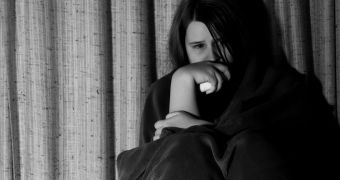Using a brain imaging technique called functional Magnetic Resonance Imaging (fMRI), researchers at the University of California in Berkeley were recently able to demonstrate the existence of physical evidences connecting anxiety of sleep deprivation, or accumulating sleep debts.
In fact, two of the most severe symptoms of anxiety include sleep loss and runaway emotional response amplification. An interesting implication of the new study is that people who are already anxious are more likely to experience a worsening of their symptoms if they miss sleep.
This study represents the first time that technology linked sleep deprivation with the development of anxiety. Anecdotal evidences to suggest that this was the case were presented some time ago, but no clear data certifying the connection were discovered thus far.
The issue with developing anxiety is that we can anticipate impending emotional events, and this fear is always with us. Sleep loss exacerbates this feeling, making it easier for anxiety to set in. This type of overreaction is very common in already-anxious patients.
What the fMRI study implies is that sleep loss and the amplification of emotional responses are in fact two inter-related phenomena. The investigation that proved this was conducted on 18 healthy adults.
Each of the participants was studied twice, first after sleeping very well for a full night, and then again after they were sleep deprived. During the tests, they all had to undergo an emotionally-charged task.
Sleep deprivation was demonstrated to increase the amount of anticipatory activity in deep emotional centers of the brain, including the amygdala. The latter is an area of the brain responsible for coding fear and the body's innate flight-or-fight response. The increase reached up to 60 percent.
“Anticipation is a fundamental brain process, a common survival mechanism across numerous species,” explains UCB expert and lead study author, Andrea Goldstein, quoted by PsychCentral.
“Our results suggest that just one night of sleep loss significantly alters the optimal functioning of this essential brain process, especially among anxious individuals. This is perhaps never more relevant considering the continued erosion of sleep time that continues to occur across society,” he adds.
The discovery may highlight new avenues of research in treating anxiety, a relatively widespread condition affecting millions, especially in the developed world.

 14 DAY TRIAL //
14 DAY TRIAL //